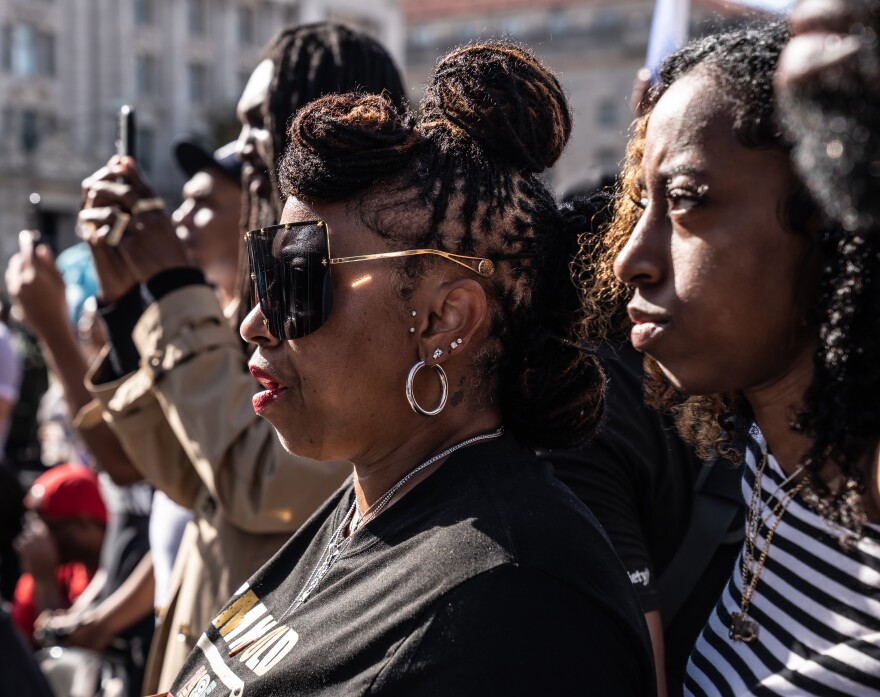When photographer Dee Dwyer attended the Rally 4 Reparations in Washington, D.C., she heard from people across the country about what reparations from slavery in the United States means to them.
Here is what she was told.


"Reparations mean acknowledgement. It's acknowledgement and proof of everything that I've been learning, everything that I've been teaching my children. That we are the builders and the creators of everything and just that we've been taught lies and to get reparations, like I said, it's acknowledgment of truth."
Ishia House, Oakland, Calif.
"It means to me really, freedom. Like we're free to do whatever it is we want. We don't have to count on nobody else to help us. We don't have to sit around and just wait for anything, no welfare. We don't have to do all that. We just take care of our own. And it shortens up the wealth gap. It makes us more independent."
Mikos Dickerson


"Reparations, it means that we deserve our money back for the wrong that was done to us. We built the entire country. We created almost everything we use today. Everything we use, we created. And we didn't get a dime off of it. So I believe reparations is the money that we deserve for building the country that the hell we put through, etc."
Mensah Chidubem
"That's the first time I've been asked this question. But if I had to sum up and make it short, of course, is to try to correct a wrong that was done to my people, my ancestors. But it's also a debt that needs to be paid that can help further the generations that come out."
Imrah Knotti, Baton Rouge, La.

"What reparations means to me is the payback for 400 years of slavery, Jim Crow and non-stop brutality that has been going on ever since. We need some kind of reparations to take care of future generations. It may not be around for me, but the future, our future, is in the hands of our youth. And that's what's most important."
Kevin Belnavis, New Brunswick, New Jersey




"Reparations is for our children. For the children yet to be born. The children in 100 years, what will they inherit from us? Not just our legacy, but there's also a financial situation that we have to take care of. Someone's got to cut the check for what our ancestors did for them."
Dr. Kaba Kamene


"To me, reparations means getting tangibles for making amends for the wrongs our ancestors had to go through for hundreds of years. We need to be paid money to continue to build back up people that has been beaten down after beat down. And even though we've been beaten down, we're still persevering regardless. But we need that anti-black hate crime bill now."
Tierra 'Syren' Jackson, Washington, D.C.


"Reparations means atonement as well as restitution for wrongs that have happened in the past as well as what is currently happening right now. Cash payments. Not only are the native black Americans of this country owed reparations in the form of monetary value, but we have also been systematically gentrified what I like to call like, a four pronged attack. We're attacked on the economic level, we're attacked on the medical level. We're attacked when we go to get a job, and we're definitely attacked in the society when they deputize the citizens against us. So we need to create our own foundation in order to ratify some of the things that have become normal."
Stephen Williams, Germantown, Md.

Dee Dwyer is a photographer from Southeast, Washington, D.C. who covers wards 7 and 8 for DCist.
Follow her on Instagram @deedwyerjonts.
Copyright 2022 WAMU 88.5


